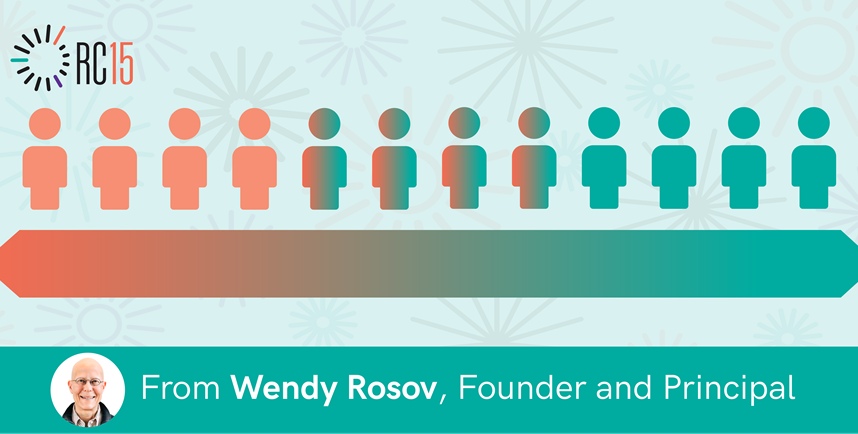
The Great Data Divide: Which Side Are You On?
Over the past 25 years of my career, I have had the distinct privilege of working with no fewer than 500 nonprofit and religious organizations in the Jewish communal sphere and over 100 philanthropic entities investing in it. My specialty is metrics. I spend time figuring out what metrics matter and then figuring out how best to get the data that speak to those metrics (including from whom, when, where, and how), how to make sense of the data, and how to help ensure the data actually make a difference. To this latter point, I can control some, but certainly not all, factors and variables in this regard.
Some easy math suggests that I have spent THOUSANDS of hours toiling in the data fields—sometimes seeing the fruits of my labors come to life and sometimes, if I must be honest, not. Based on my experience, I have come to identify what I call the Great Data Divide: that which separates the Data Defiant from the Data Driven. In reality, most of the actors (individuals and organizations) in our ecosystem reside somewhere along the continuum: the Data Dismissive, the Data Dubious, the Data Dabblers, and the Data Doers.

Data Defiant: Organizations and individual actors who simply will not, on principle, ever participate in, use, or reference any form of data in their work. They simply don’t believe in data. Fortunately, these folks are few and far between in our sector—but every once in a while they turn up.
Data Dismissive: Then there are those who might participate in data efforts but ultimately dismiss findings based on all kinds of reasons—most typically because they don’t agree with what’s been found. I always struggle to understand why they were willing to participate in the first place if they weren’t open to hearing or learning something that perhaps doesn’t comport with their point of view.
Data Dubious: Moving toward the great Data Divide are those who are willing to participate, open to learnings that might not comport with their preconceived ideas and notions of “things.” However, they have what I will call a healthy dose of skepticism about it all. This is not necessarily a bad thing, but these folks tend to be doubters more than believers.
Data Dabblers: Just on the other side of the great Data Divide are those who occasionally use data to inform their work—and even sometimes go so far as to periodically participate in or commission research and evaluation work. They aren’t necessarily consistent in their orientation to data, and, when not dabbling, might even slide into being slightly dubious from time to time.
Data Doers: These are the organizations and actors in our ecosystem who are enthusiastic about data and sometimes use it in their planning and decision making. They may not always be discerning about it, though, and occasionally pass over it for expediency.
Data Driven: These are folks who rely on data to inform everything they do. No decision gets made, no action gets taken, and no program is designed without reference to any and all data that speak to the need. They are discerning about data and understand its power, potential, AND, importantly, its limitations.
Data-Driven…. to Distraction
These are a lot like their Data Driven cousins, but they lack discernment in terms of when it is indeed appropriate and warranted to rely on data. Oftentimes, they chase after any and all data they can get their hands on without carefully considering who produced the data, under what circumstances, and what limitations may inhere. They can’t see the forest from the trees. (Or, as they say, when you are a hammer, everything looks like a nail.)
So, in the words of a song written written by Florence Reece, the daughter and wife of coal miners in Kentucky (and later made famous by Pete Seeger): Which Side (of the Data Divide) Are You On? There are lot of reasons why you are where you (or your organization) are. If you’d like help exploring those and to possibly (to quote the Doors) “break on through to the other side,” our team can probably help.




